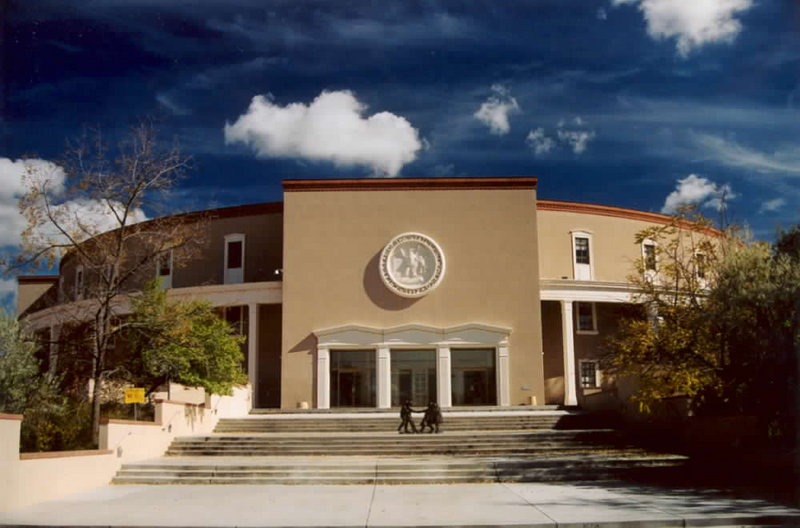During an interim committee hearing, the New Mexico Coalition of Sexual Assault Programs asked for $5 million to be added for state budget consideration in the 2022 Legislature.
Alexandria Taylor, deputy director of the coalition, said the state ranks seventh in the nation in rates of sexual violence and called the rates of sexual violence in New Mexico an “epidemic.” She asked that any crime package “prioritize” the crime of sexual violence.
The $5 million request includes $2 million for sexual assault programs to increase services, address gaps across the state and focus on rural and underserved areas, including a 12-month wait list in some counties for services; $1 million to address sexual assault mental health programs to address that gap in services; $1.3 million to sustain satellite children advocacy centers in rural areas; $500,000 for operation of the statewide sexual assault hotline and $200,000 for Indigenous research and coordination of tribal services, Taylor said.
She said 41 percent of reported assaults in New Mexico are children who are under the age of 18. She also said that while reports of sexual violence to law enforcement are trending downward, there has been an increase in requests for sexual assault services.
Because services are so sparse, especially in rural areas, victims sometimes have to travel two to three hours to receive services or wait two to three hours for a sexual assault nurse examiner to reach them. Taylor said there are only 11 sexual assault nurse examiners covering the entire state.
Stacy Blazer-Clark, executive director of La Piñon Sexual Assault Recovery Services in Las Cruces, said her organization serves individuals in Luna and Hidalgo counties and also Otero County to the east, as well as Doña Ana County.
She said a sexual assault program in Portales serves the entire eastern part of the state and the agency travels two plus hours while the victim, in some cases, has to travel two plus hours to meet them halfway.
She said a large immigrant population in the rural counties do not have access to services because they are afraid to travel due to U.S. Customs and Border Protection. Her agency does not have access to a mobile unit or a site where her agency can meet victims, she said.
Stephanie Villalobos, executive director of New Mexico Coalition of Sexual Assault Programs in Valencia County, said her organization serves four separate counties. In addition to Valencia County, the coalition serves Catron, Socorro and Torrance counties for both adults and children, she said.
For some services, victims have a 12-month wait list, Villalobos said. She also said many in Valencia County speak Spanish and there are language barriers for some victims.
Some of the money would go to address the gap in pay for mental health providers who work at sexual assault service organizations, Taylor said. She said that they are paid $15,000 to $20,000 below market rate while sexual assault victims have a high rate of developing Post Traumatic Stress Disorder.
Another request was to support legislation to end pre-trial interviews as a requirement for court proceedings. Blazer-Clark told a story of a nine-year-old in Doña Ana County who was unable to complete a pre-trial interview and the case, with 14 allegations of sexual penetration of a minor, was dropped.
In some judicial districts in the state, the rate of dismissal of crimes of sexual violence, including to children, is 91 percent of the time, Taylor said.
Another request was to legislate that sexual education in the state include instruction on affirmative consent. Taylor said that a 2020 study of behavior of campus sexual assault found victimization was reduced by half when students had comprehensive sexual education, including affirmative consent, before going to college.
Marshall Martinez, executive director of Equality New Mexico, said LGBTQ youth suffer much higher rates of sexual violence in adolescence due to the cultural stigma and shame.
Rep. Gail Chasey, D-Albuquerque, who co-chairs the Interim Courts, Corrections and Justice Committee, told a story of a client of hers who suffered sexual violence and suffered mental health issues as a result. She called it “a different kind of cancer.”






















